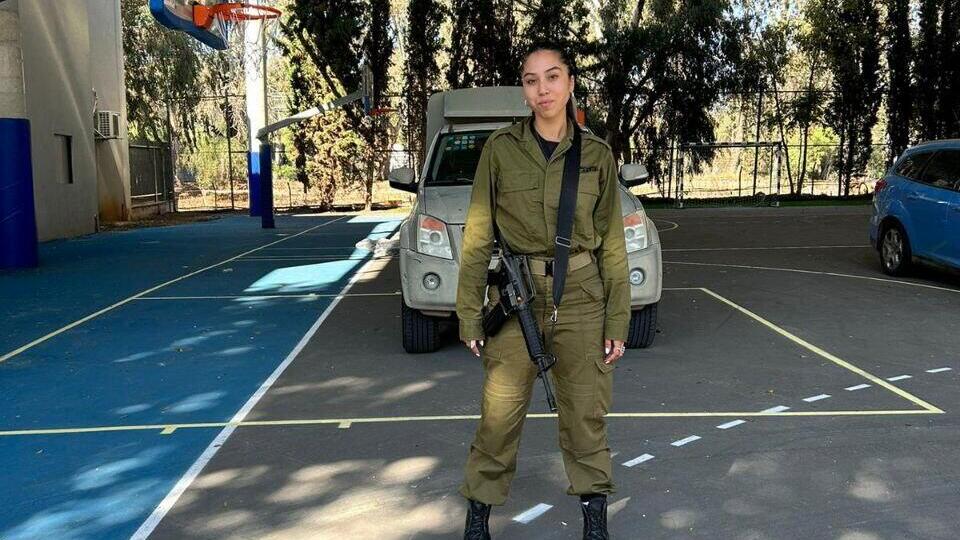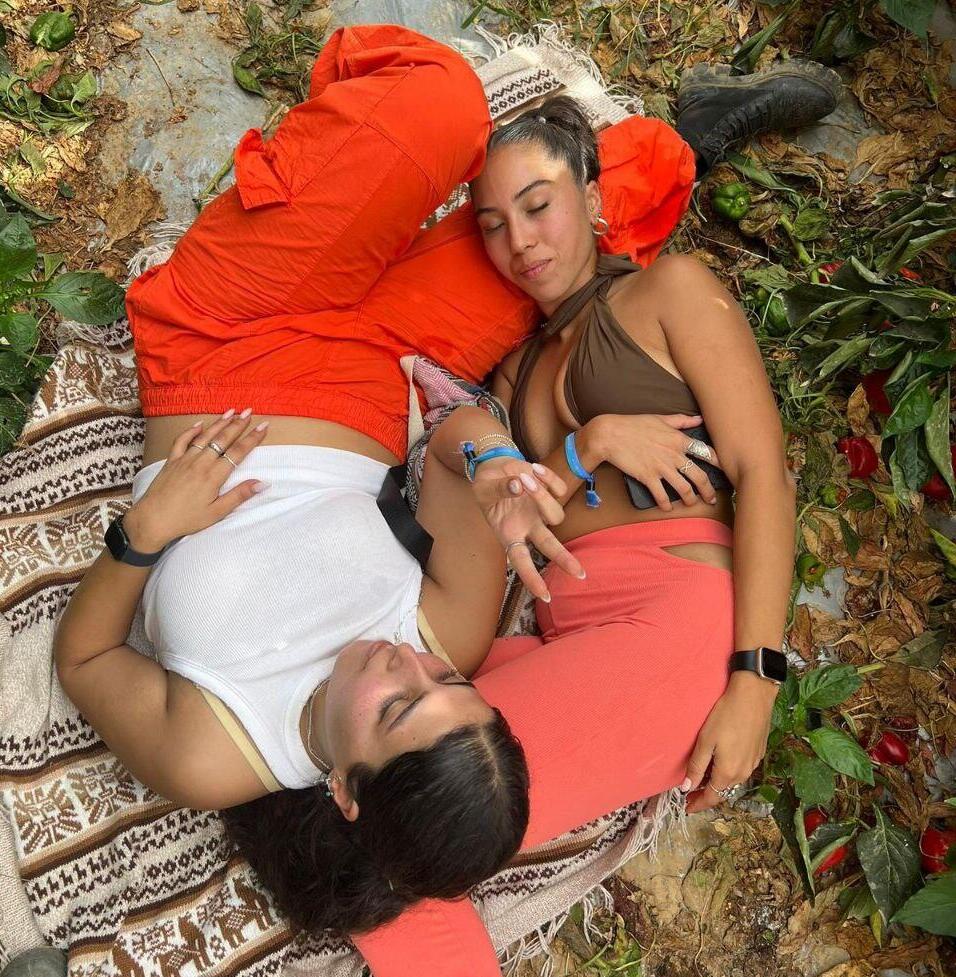Getting your Trinity Audio player ready...
Galit Kadashev, 24, of Hadera, survived the murderous massacre by Hamas at the Nova music festival at Kibbutz Re'im. As the Hamas attack was still going on, she received a call-up notice from the army, where she is a reservist in the Home Front Command's search and rescue unit. In an interview with Ynet, she described the difficult hours she and her friends experienced and how they managed to survive.
Read more:
"I arrived at the festival with friends. In the middle of the night, we started setting up our camp with tents and mats," she recalls. "After about two hours, we started hearing missile interceptions. While the music was still playing in the background, a friend living in the south informed us that there was a barrage of rockets. I spent half of my military service in Zikim, so I'm used to missile attacks, and therefore I wasn't very stressed at first. We started walking toward the exit, which was a five-minute walk."
2 View gallery


Galit Kadshev, 24, from Hadera, who survived the murderous massacre at the Nova music festival in Kibbutz Re'im
The shooting continued, and Galit soon realized that this time the magnitude of the event was of different nature. "We laid down on the floor and I hugged my best friend. Then, we did what everybody else was doing while the security began to disperse us. We went back to pack our belongings, and by this time there were already hysterical people who tried to get out and came back screaming. I arrived at the parking lot, which was already half empty, and searched for my car for more than 20 minutes. In retrospect, it turned out that everyone who got out during that period of time was shot at."
"We crawled toward the exit, there was a huge traffic jam. Suddenly a red jeep arrived driving at a crazy speed to an extent that its airbags deployed. Two people got out of the car shouting, asking for someone to go save their friend who had been shot, and saying that there were terrorists there. Eight men got out and helped her, and then four police officers yelled at everyone imploring them to leave the vehicles and start running. I thought at first that, even if terrorists were there, it must be a small squad and the IDF must have already taken control of them," Galit recalls.
When everyone started running to an open area, Galit ran with them. "All along the way we heard gunshots. People around me were calling their families and friends to say goodbye. Some were sending a location asking to come and rescue them. Everyone was screaming and couldn't understand how there were still no rescue helicopters in the sky, only Iron Dome interceptions. "
After running and hiding for five hours, Galit's strength was running out. "I thought that we would die of dehydration before a bullet hit us. We saw greenhouses on the horizon and ran toward them. There were fields of bell pepper nearby, we managed to eat some and drink water from a tap that was on site. We broke into an adjacent building which was equipped with toilets and water, it probably served the Thais who were living there. At first there were five of us there, but soon more and more ravers who managed to escape arrived. In the end, about 100 people were hiding there."
2 View gallery


Galit Kadshev, 24, and a friend relax at the Nova music festival before terrorists stormed the area
Two hours after they began hiding in the farm's building, a member of the security detail at Moshav Patish, which is 7 km away from where they were hiding, arrived and directed the group to the moshav. "On the way there, civilian vehicles picked us up," recalls Galit. "We got into the car of the Channel 12 reporter Rami Shani. It is unimaginable that people risked their lives and entered a danger zone to save other people's lives, people they didn't know. Rami saved me. I saw it all day long – while terrorists were shooting, Israeli people were helping others to hide, pulling those who were running out of strength, it was amazing."
On that cursed Shabbat, Galit received a call-up for reserve duty from the IDF. Galit, who served as a search and rescue soldier with the Home Front Command, says: "Amid the helplessness I was in, this call-up made me feel in control, and I knew that I had to serve. I saw with my own eyes what was happening there."
Galit wanted to report to the base the very next day. "When I got home on Saturday, my mother fainted in my arms. She is an elderly woman, and the pressure was too much for her. My older brother, a military officer in the reserves, was immediately called up, and I saw how anxious my mother was. Therefore, I decided to stay at home with her for a few more days. I also needed it. On Tuesday, I felt that I'd gained enough strength, knowing that I could not sit at home any longer doing nothing, so I reported for reserve duty."


